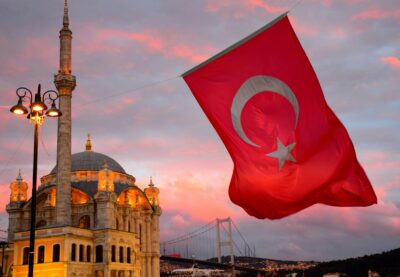
Turkey Receives Released Palestinian Terrorists; Concerns Mount Over Hamas Expansion
Reports confirm that Turkey has welcomed 15 Palestinian terrorists recently released from Israeli prisons. These individuals were freed as part of the hostage exchange agreement reached during the ongoing conflict between Israel and Hamas. The Qatari newspaper Al-Arabi Al-Jadeed, quoting Egyptian sources, revealed that the Turkish government accepted the detainees, a move viewed by analysts as potentially strengthening Hamas’s infrastructure abroad.
These terrorists, many of whom were convicted for involvement in attacks against Israeli civilians, are not mere political prisoners but active operatives connected to terror activities. Security experts have expressed apprehension that their relocation to Turkey—a country already criticized for providing sanctuary to Hamas leadership—will enable the terror group to reorganize, rearm, and plan future attacks, posing continued threats to the safety and security of Israel’s citizens.
Further reports suggest that Malaysia and Indonesia may follow suit, possibly accepting additional released terrorists. However, the same Qatari outlet reported that two African countries that had initially agreed to assist in receiving the terrorists have since reversed their decision, likely due to mounting international pressure or internal policy concerns.
This development comes amid heightened scrutiny of Turkey’s ties to Hamas. An Israeli research center recently published findings warning that the presence of Hamas operatives in Turkey, bolstered by these new arrivals, could lead to a fortified base of operations from which the group might continue its activities with impunity. Notably, Turkey has long maintained a relationship with Hamas, justifying its stance as support for what it terms Palestinian “resistance,” despite the group’s violent tactics and rejection of peaceful coexistence with the State of Israel.
Israel’s decision to release these prisoners was not taken lightly and came under intense debate within the country. The release formed part of a broader ceasefire framework brokered by multiple international parties, aiming to secure the return of Israeli hostages held by Hamas. For many Israelis, particularly families directly impacted by terror, the release of individuals with blood on their hands evokes mixed feelings of relief for the return of hostages but also deep discomfort over the price paid.
It is important to recall that halachic authorities have grappled with the complex issue of pidyon shevuyim throughout Jewish history, weighing the mitzvah’s paramount importance against potential dangers to the broader community. In this modern scenario, Israeli leaders were faced with such weighty decisions, balancing immediate life-saving efforts with the broader implications for public safety.
Moreover, Turkey’s reception of these terrorists may have broader geopolitical ramifications. By providing a safe haven, Turkey appears to position itself further in alignment with radical elements in the region, distancing itself from Western allies and exacerbating tensions with Israel. This aligns with Turkish President Recep Tayyip Erdoğan’s longstanding policy of fostering ties with Hamas and other Islamist movements.
The participation of Malaysia and Indonesia, two Muslim-majority nations in Southeast Asia, further demonstrates the global dimensions of the Israeli-Palestinian conflict. Both countries have historically refused to establish diplomatic ties with Israel and have often voiced support for Palestinian causes. Should they proceed with accepting additional released terrorists, it may signal an attempt to bolster Hamas’s international network.